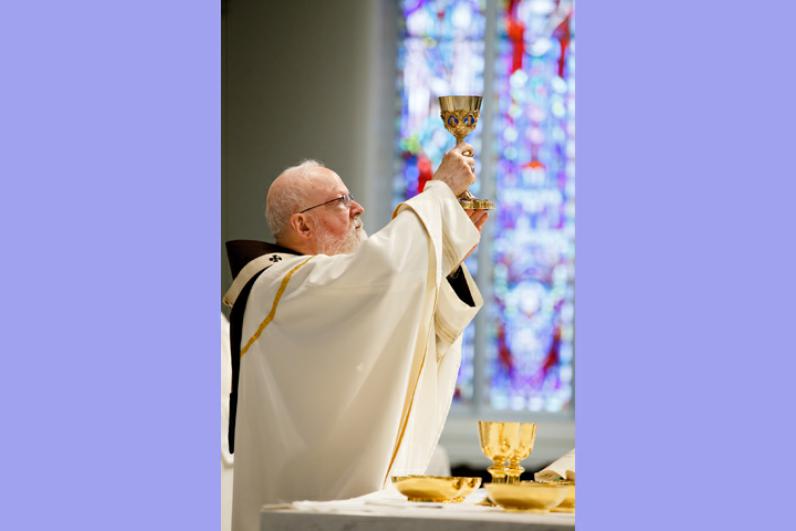Eucharist changes everything
A eucharistic revival? Good God, I hope so! Nothing could be closer to the heart of Christ than three years focused on renewing our awe and wonder at the great gift Jesus left us in Holy Eucharist. In fact, we could see his entire public ministry as a paradigm of precisely this: three years of teaching, preaching, and healing which culminated in the mystery of our salvation and the gift of the sacrament that both contains and perpetuates it through time. But what does that mean for us? Even more, what can it mean?
"Corpus Christi." "The Body of Christ." "Holy Communion." "Eucharist." The "Bread of Life." The "Bread of Angels." "Viaticum." "Manna from Heaven." The "Most Blessed Sacrament." The words we use all sound so deeply meaningful -- but float so high above our reach. Perhaps that's why so many of us struggle to believe that what we receive truly is what we've been told: the Body, Blood, Soul, and Divinity of Jesus Christ. In a world obsessed with only the material reality we can see, a morsel of bread seems insignificant and imbuing it with mystical power can feel fanatical. The effect is that the pedestal we use to communicate its centrality and importance simply pushes its truths further away. It's hard enough to accept that the eternal and transcendent God became flesh.
And that's the crux of it. After 2,000 years, we Christians have not yet felt the full force of the incarnation. We haven't unpacked what that divine outpouring means, and what it does to what we are. How it makes us who we are. Eucharist means that God not only came to be with us, he remains with us -- even in us. Nothing can separate us from Christ. We live in him and he lives in us. The communion we have with him is not only holy but unbreakable. We not only receive his body, we become his body in this world of bodily existence. The Eucharist changes everything. It changes us.
God is still here. He hasn't gone to heaven and left us to our own devices. In fact, he hasn't gone at all. In Eucharist, Jesus is present; always here and always now. Always right in front of us. Always giving himself to us. Eucharist means that God doesn't just give of himself, he gives himself to us whole and entire. He holds nothing back. His complete and sacrificial offering is available to each one of us. We don't have to travel through time or project ourselves into history because he has wrapped us in eternity. He has gathered us all at the foot of his cross. And it is there that we find the communion we long for, the unity with one another that comes only from union with him.
Oh let it come! Let the Body and Blood of Christ be lifted up. Let it draw all people -- especially those who don't even know how hungry they are -- to him. And let it revive those of us who have grown weary and cold. Let the Holy Eucharist call us from sin and dead works to renewed love and fresh fervor.
And let us become a eucharistic people of presence, sacrifice, and communion. Let us set out each day with that simple agenda: to be with, to be for, to be one with God and neighbor. And at the end of each day, let us examine ourselves against the example of Christ's self-giving love. How was I present today? What sacrifices did I make? What did I do to build communion? We don't need degrees in theology or the heights of mystical prayer to become what we receive. We only need to release the power of the incarnation and let the word take flesh in us. The Eucharist itself gives us life and shows us how to live.
- Jaymie Stuart Wolfe is a Catholic convert, wife, and mother of eight. Inspired by the spirituality of St. Francis de Sales, she is an author, speaker, and musician, and provides freelance editorial services to numerous publishers and authors as the principal of One More Basket. Find Jaymie on Facebook or follow her on Twitter @YouFeedThem.



















